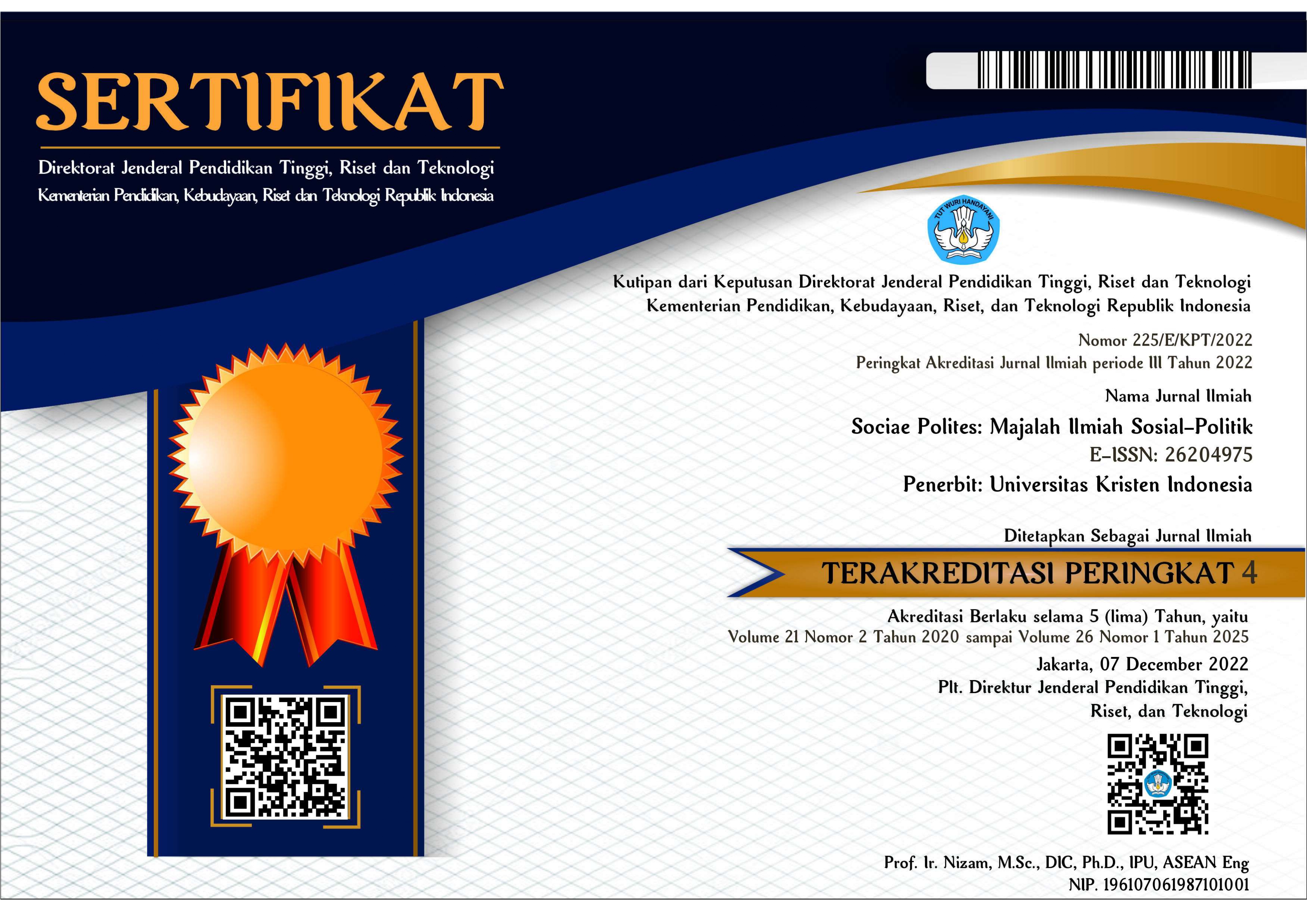AUTOCRATIC LEGALISM IN THE 2024 ELECTIONS: DISTORTIONS OF THE RULE OF LAW IN INDONESIA’S DEMOCRACY
DOI:
https://doi.org/10.33541/sp.v26i1.7001Abstract
This study examines the rise of autocratic legalism in Indonesia’s 2024 elections, highlighting how legal mechanisms were manipulated to consolidate power, suppress dissent, undermine electoral fairness, and weaken public accountability.The research identifies five core patterns of autocratic legalism: (1) manipulation of judicial institutions, (2) misuse of internal political party mechanisms, (3) enactment of manipulative legislation, (4) politicization of public policy, and (5) instrumentalization of the state bureaucracy. Using a normative legal method, this study applies statutory, case-based, and conceptual approaches, relying on legal documents, court rulings, and scholarly works on constitutional democracy. It draws from both primary and secondary legal sources, as well as governance indicators, to demonstrate the impact of autocratic tendencies on Indonesia’s democratic quality.The findings reveal that autocratic legalism, when normalized, endangers the foundation of Indonesia’s constitutional democracy. Theoretically, this study contributes to understanding how autocratic regimes weaponize legal frameworks to dismantle democratic norms from within, accelerating processes of democratic backsliding. It emphasizes the need to reconceptualize democratic resilience, not merely as institutional endurance, but as the capacity to resist legal manipulations from within. Accordingly, the study recommends reforms to secure judicial independence, revise the Political Party Law, expand civil liberties, and foster meaningful public participation. These measures are vital to restoring democratic integrity and upholding the rule of law as mandated by the 1945 Constitution.
Keywords: autocratic legalism, 2024 elections, sustainable democracy, electoral integrity, rule of law


 Sociae Polites: Majalah Ilmiah Sosial Politik
Sociae Polites: Majalah Ilmiah Sosial Politik